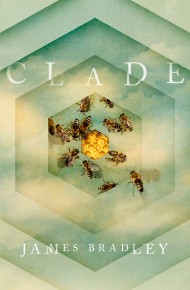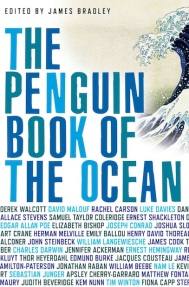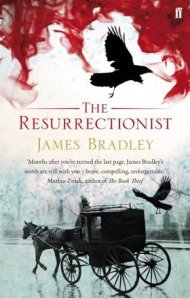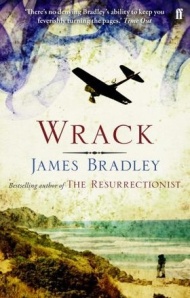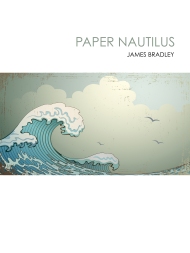Best Books 2017
 It’s nearly the holidays, so I thought I’d brush the cobwebs off the website and pull together a list of some of the books I’ve loved this year.
It’s nearly the holidays, so I thought I’d brush the cobwebs off the website and pull together a list of some of the books I’ve loved this year.
Two of the novels I enjoyed most – George Saunders’ Lincoln in the Bardo and Mohsin Hamid’s Exit West – turned up on the Man Booker shortlist, and while if it had been up to me I might have ended up handing the gong to Hamid instead of Saunders they’re both very fine novels. Interestingly though, I felt the Booker longlist was stronger than the shortlist, and while I was also very impressed by Ali Smith’s Autumn (and I loved the second part of her seasons quartet, Winter, which was published a couple of weeks ago) and Fiona Mozley’s visionary and charged Elmet, the book I wish had won, Jon McGregor’s thrillingly strange portrait of the unsettled landscape of an English town Reservoir 13, didn’t make the cut. Nor was it the only baffling omission: certainly I would have rated any of Sebastian Barry’s beautiful Days Without End, Kamila Shamsie’s deeply engaging reworking of Antigone, Home Fire, Elizabeth Strout’s quietly brilliant Anything Is Possible and Colson Whitehead’s The Underground Railroad and Mike McCormack’s Solar Bones (both of which I mentioned in my 2016 round-up) over a couple of the shortlisted titles.
 I also loved Alan Hollinghurst’s glorious The Sparsholt Affair, a book that is so gorgeously and wittily constructed sentence by sentence and so wonderfully well-observed I spent the whole final third being sorry it was going to end. I was also hugely impressed by Megan Hunter’s slim but beautiful story of a flooded England, The End We Start From, Philip Pullman’s triumphant return to the world of Northern Lights, La Belle Sauvage (a book that also, not coincidentally, I suspect, features an epochal flood), Jennifer Egan’s sleekly oblique Manhattan Beach and Jesmyn Ward’s National Book Award-winning Sing, Unburied, Sing. And while we’re on the subject of floods, I very much enjoyed Daisy Hildyard’s elegant exploration of the infinite unboundedness of the Anthropocene, The Second Body.
I also loved Alan Hollinghurst’s glorious The Sparsholt Affair, a book that is so gorgeously and wittily constructed sentence by sentence and so wonderfully well-observed I spent the whole final third being sorry it was going to end. I was also hugely impressed by Megan Hunter’s slim but beautiful story of a flooded England, The End We Start From, Philip Pullman’s triumphant return to the world of Northern Lights, La Belle Sauvage (a book that also, not coincidentally, I suspect, features an epochal flood), Jennifer Egan’s sleekly oblique Manhattan Beach and Jesmyn Ward’s National Book Award-winning Sing, Unburied, Sing. And while we’re on the subject of floods, I very much enjoyed Daisy Hildyard’s elegant exploration of the infinite unboundedness of the Anthropocene, The Second Body.
 I’m not sure it makes much dividing science fiction and fantasy publishing from literary publishing any more, especially not when the concerns so many of the best novels on both sides of the divide are exploring are so similar (and indeed, when so many writers move so fluidly back and forth), a point that’s underlined by the fact stories in Carmen Maria Machado’s hugely impressive Her Body and Other Parties were published in Strange Horizons (read it: it’s fabulous) and Tin House, while Sarah Hall’s gorgeous and deeply uncanny Madame Zero deliberately reject the notion they need to be one or the other (it’s probably not coincidental another of the books I admired most, Ottessa Moshfegh’s viscerally unsettling Homesick for Another World, features a photo of a flying saucer on its cover, but despite often having an affect that owes a little to the weird and horror fiction, has almost no fantastical elements). But it still seems a pity that a book like Jeff Vandermeer’s riotously inventive Borne (which I loved, and reviewed for Sydney Review of Books) is so much more visible to mainstream readers than books such as Adam Roberts’ joyously inventive mash-up of Agatha Christie, Hitchcock and Black Mirror, The Real-Town Murders, Paul McAuley’s deeply sad and tender Austral, Nina Allan’s brilliantly off-kilter exploration of the unresolvable nature of grief, The Rift, Kim Stanley Robinson’s sprawling and intellectually dazzling New York 2140, or even Ann Leckie’s sort-of sequel to her Ancillary Trilogy, Provenance. The other science fiction and fantasy title I loved, Garth Nix’s playfully subversive fairy-tale mash-up, Frogkisser, is YA, and so less troubled by these sorts of questions.)
I’m not sure it makes much dividing science fiction and fantasy publishing from literary publishing any more, especially not when the concerns so many of the best novels on both sides of the divide are exploring are so similar (and indeed, when so many writers move so fluidly back and forth), a point that’s underlined by the fact stories in Carmen Maria Machado’s hugely impressive Her Body and Other Parties were published in Strange Horizons (read it: it’s fabulous) and Tin House, while Sarah Hall’s gorgeous and deeply uncanny Madame Zero deliberately reject the notion they need to be one or the other (it’s probably not coincidental another of the books I admired most, Ottessa Moshfegh’s viscerally unsettling Homesick for Another World, features a photo of a flying saucer on its cover, but despite often having an affect that owes a little to the weird and horror fiction, has almost no fantastical elements). But it still seems a pity that a book like Jeff Vandermeer’s riotously inventive Borne (which I loved, and reviewed for Sydney Review of Books) is so much more visible to mainstream readers than books such as Adam Roberts’ joyously inventive mash-up of Agatha Christie, Hitchcock and Black Mirror, The Real-Town Murders, Paul McAuley’s deeply sad and tender Austral, Nina Allan’s brilliantly off-kilter exploration of the unresolvable nature of grief, The Rift, Kim Stanley Robinson’s sprawling and intellectually dazzling New York 2140, or even Ann Leckie’s sort-of sequel to her Ancillary Trilogy, Provenance. The other science fiction and fantasy title I loved, Garth Nix’s playfully subversive fairy-tale mash-up, Frogkisser, is YA, and so less troubled by these sorts of questions.)
 My favourite Australian novel was Jane Rawson’s fabulously weird remaking of the historical novel, From the Wreck, but I also loved Krissy Kneen’s science fictional exploration of post-humanity and desire and intimacy, An Uncertain Grace, Ashley Hay’s delicate exploration of post-natal depression and the complex entanglements of place and love, A Hundred Small Lessons and Kathryn Heyman’s brutal but necessary Storm and Grace. I also enjoyed Shaun Prescott’s unsettling excursion into the haunted spaces of central west NSW, The Town, Sally Abbott’s powerful and deeply unsettling exploration of climate change and similar questions about Australia’s inland communities, Closing Down, and Jock Serong’s incredibly powerful excursion into the charged territory of Australia’s refugee policy, On The Java Ridge (a book that has one of the most viscerally intense central sections I’ve read in a long, long time). And while it wasn’t strictly a 2017 book, I also really enjoyed Mark Smith’s post-apocalyptic young adult novel, The Road to Winter, and I’m very much looking forward to the sequel, Wilder Country (which did come out in 2017).
My favourite Australian novel was Jane Rawson’s fabulously weird remaking of the historical novel, From the Wreck, but I also loved Krissy Kneen’s science fictional exploration of post-humanity and desire and intimacy, An Uncertain Grace, Ashley Hay’s delicate exploration of post-natal depression and the complex entanglements of place and love, A Hundred Small Lessons and Kathryn Heyman’s brutal but necessary Storm and Grace. I also enjoyed Shaun Prescott’s unsettling excursion into the haunted spaces of central west NSW, The Town, Sally Abbott’s powerful and deeply unsettling exploration of climate change and similar questions about Australia’s inland communities, Closing Down, and Jock Serong’s incredibly powerful excursion into the charged territory of Australia’s refugee policy, On The Java Ridge (a book that has one of the most viscerally intense central sections I’ve read in a long, long time). And while it wasn’t strictly a 2017 book, I also really enjoyed Mark Smith’s post-apocalyptic young adult novel, The Road to Winter, and I’m very much looking forward to the sequel, Wilder Country (which did come out in 2017).
 On the comics front I was hugely impressed by Emil Ferris’ extraordinarily dense and marvellously idiosyncratic My Favourite Thing is Monsters, and while there were fewer moments of excitement on the mainstream comic front, I’m completely in love with Jeff Lemire’s Black Hammer (and its new offshoot, Sherlock Frankenstein) and I continue to be surprised by how much I’m engaged by Ed Brubaker’s reworking of the trope of the lone vigilante, Kill Or Be Killed. But the comic I loved most this year was one I should have read a decade ago but never quite got around to, Alison Bechdel’s astonishing Fun House (and which I’m going to mention here simply because it’s so good I think everybody should read it).
On the comics front I was hugely impressed by Emil Ferris’ extraordinarily dense and marvellously idiosyncratic My Favourite Thing is Monsters, and while there were fewer moments of excitement on the mainstream comic front, I’m completely in love with Jeff Lemire’s Black Hammer (and its new offshoot, Sherlock Frankenstein) and I continue to be surprised by how much I’m engaged by Ed Brubaker’s reworking of the trope of the lone vigilante, Kill Or Be Killed. But the comic I loved most this year was one I should have read a decade ago but never quite got around to, Alison Bechdel’s astonishing Fun House (and which I’m going to mention here simply because it’s so good I think everybody should read it).
And finally, two non-fiction books. the first, Peter Godfrey-Smith’s exploration of the inner world of cephalopod consciousness, Other Minds: The Octopus, The Sea and the Deep Origins of Consciousness, is a fascinating illustration of the ways in which philosophy can illuminate science in just the same way science can illuminate philosophy. The second, The Museum of Words, is the book my friend Georgia Blain wrote in the months before her death, and which was subsequently edited by her husband, Andrew Taylor, and while its range is circumscribed by the conditions of its composition, it is a wonderfully eloquent reminder of the clarity of thought, empathy and humour that made Georgia’s writing so special.







 It’s Sunday morning and I’m sitting on the beach beside the steel gantries and fuel tanks of Botany Bay’s container terminal watching my kids build a sandcastle by the water’s edge, a structure that keeps collapsing because the waves keep hitting it. But what I can’t get out of my head is the section of Kim Stanley Robinson’s new novel,
It’s Sunday morning and I’m sitting on the beach beside the steel gantries and fuel tanks of Botany Bay’s container terminal watching my kids build a sandcastle by the water’s edge, a structure that keeps collapsing because the waves keep hitting it. But what I can’t get out of my head is the section of Kim Stanley Robinson’s new novel, 
 A little after the fact, but I’ve got a story in
A little after the fact, but I’ve got a story in  It’s that time of year, so because what the world needs is yet another best of the year list (surely it’s time we all went meta and started producing lists of the best best of lists?) I thought I’d pull together a quick roundup of some of the books I loved this year (if I get the time I’ll also put together a few music picks).
It’s that time of year, so because what the world needs is yet another best of the year list (surely it’s time we all went meta and started producing lists of the best best of lists?) I thought I’d pull together a quick roundup of some of the books I loved this year (if I get the time I’ll also put together a few music picks). I also hugely admired Annie Proulx’s monumental
I also hugely admired Annie Proulx’s monumental  I’m not sure it would be correct to say I loved Adam Haslett’s
I’m not sure it would be correct to say I loved Adam Haslett’s  In terms of non-fiction, my pick of the year is Bruce Pascoe’s brilliant study of pre-contact Aboriginal agriculture and technology, Dark Emu. There aren’t many books I think every Australian should read but Pascoe’s is definitely one of them. I also very much admired Amy Liptrot’s Wainwright Prize winner,
In terms of non-fiction, my pick of the year is Bruce Pascoe’s brilliant study of pre-contact Aboriginal agriculture and technology, Dark Emu. There aren’t many books I think every Australian should read but Pascoe’s is definitely one of them. I also very much admired Amy Liptrot’s Wainwright Prize winner,  And finally, although my experience of it was tinged with great sadness, I loved my friend Georgia Blain’s final novel,
And finally, although my experience of it was tinged with great sadness, I loved my friend Georgia Blain’s final novel, 
 I’m thrilled to be able to announce that Clade has been shortlisted for the 2016 Western Australian Premier’s Award for Fiction, alongside books by
I’m thrilled to be able to announce that Clade has been shortlisted for the 2016 Western Australian Premier’s Award for Fiction, alongside books by 

